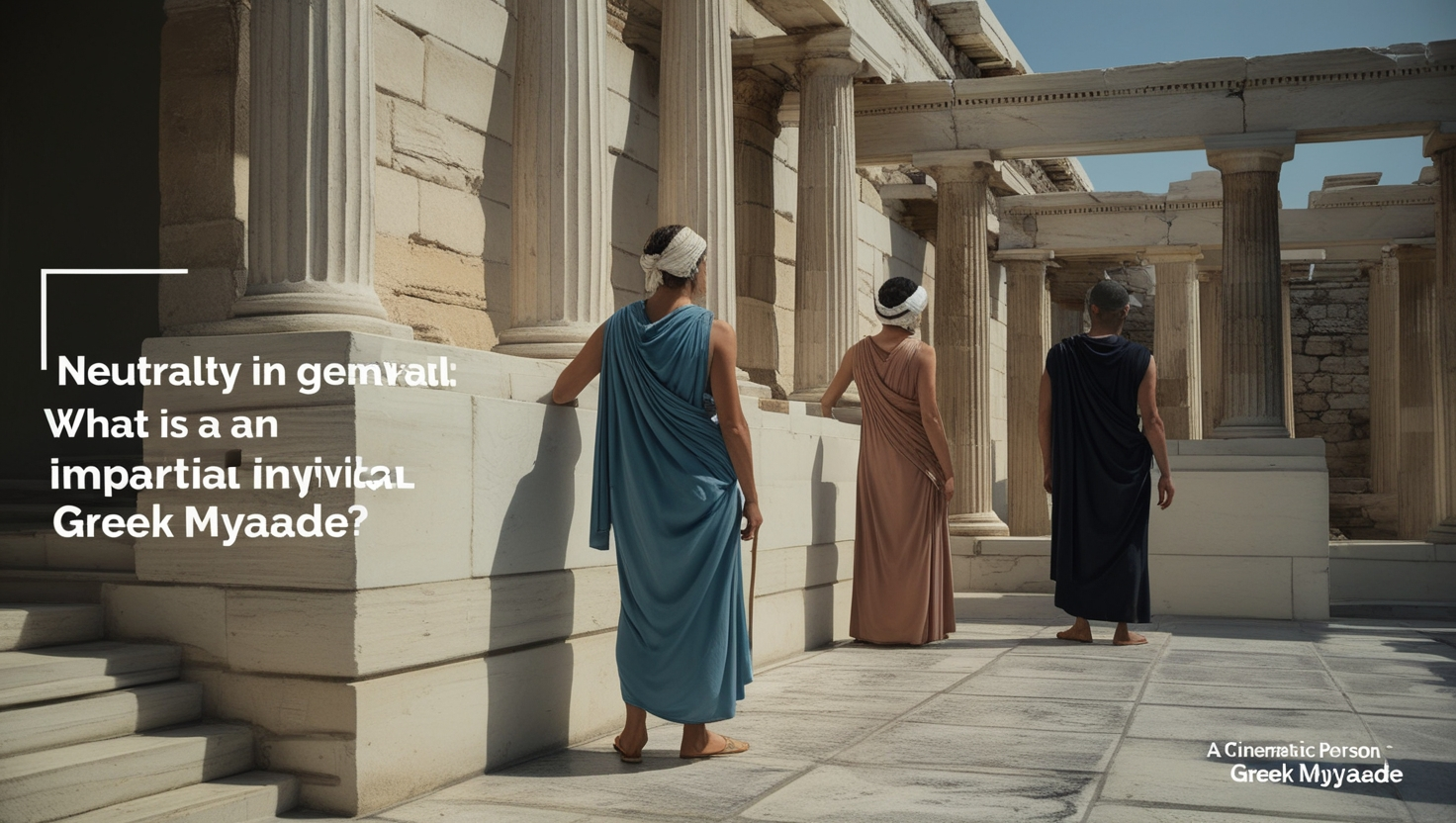Introduction
Individuals frequently look for changed ways of characterizing themselves and their cultural jobs in our steadily impacting world. One concept that has intrigued many is the idea of “what is an impartial individual Greek myaade.” Albeit not generally known, this term holds profound importance in unambiguous social and philosophical settings. This article will explore what a neutral person Greek myaade means, its origins, and how it affects various aspects of life, providing a comprehensive look at the topic.
The Meaning of Neutrality
Lack of bias, from an overall perspective, alludes to the condition of not supporting or aiding either side in a contention or conflict. It implies impartiality and non-involvement, allowing individuals to maintain an unbiased stance. In the context of “what a neutral person is, Greek myaade,” neutrality goes beyond mere non-participation. It encompasses a philosophical and ethical stance that influences behaviour, decisions, and interactions.
Historical Origins of Neutrality in Greek Culture
The concept of neutrality has roots in ancient Greek philosophy. Philosophers such as Socrates, Plato, and Aristotle explored the idea of balanced living and impartial judgment. “What is a neutral person Greek myaade” can be traced back to these philosophical traditions, where the emphasis was placed on achieving a harmonious life through moderation and reason. This neutrality was about avoiding conflict and fostering understanding and balance.
The Role of Myaade in Greek Philosophy
The term “myaade” is not widely recognized but is understood within certain Greek philosophical circles to denote a person who embodies neutrality. A “what is a neutral person Greek myaade” seeks to live a life free from extreme emotions and biases, striving for inner peace and clarity. This concept aligns with the teachings of Stoicism, which advocates for emotional resilience and rational thinking as paths to personal well-being.
Neutrality in Daily Life
Incorporating the principles of “what is a neutral person Greek myaade” into daily life involves practising restraint and mindfulness. It requires individuals to remain calm and composed, especially in conflict or stress. By maintaining neutrality, a myaade can approach problems with a clear mind, making fair and just decisions. This balanced approach can lead to more harmonious relationships and a stable mental state.
Neutrality in Modern Greek Society
Today, the idea of “what is a neutral person Greek myaade” continues to influence various aspects of Greek society. From politics to personal interactions, neutrality principles are valued for promoting fairness and understanding. In political discourse, for example, neutrality can help mediate between opposing views, fostering dialogue and compromise. Similarly, in personal relationships, being a myaade means resolving conflicts with empathy and without prejudice.
The Ethical Implications of Neutrality
Ethically, “What is a neutral person Greek myaade” raises important questions about the role of individuals in society. Is it always right to remain neutral, or are there situations where taking a stand is necessary? While neutrality promotes peace and balance, it can also be seen as a form of inaction in the face of injustice. Thus, being a myaade involves carefully considering when to maintain neutrality and when to act.
Neutrality in Conflict Resolution
One key application of “what is a neutral person Greek myaade” is conflict resolution. By staying neutral, individuals can facilitate discussions between conflicting parties, helping them reach mutually beneficial solutions. This approach effectively mediates family disputes, workplace disagreements, and community conflicts. The myaade’s ability to remain impartial makes them trusted mediators who can navigate complex issues without bias.
The Psychological Benefits of Neutrality
Psychologically, adopting the principles of “what is a neutral person Greek myaade” can lead to numerous benefits. It can reduce stress and anxiety by encouraging a detached perspective on problems. This detachment allows individuals to assess situations, leading to better decision-making objectively. Furthermore, neutrality fosters emotional resilience, helping individuals cope with life’s challenges without becoming overwhelmed by negative emotions.
Challenges of Being a Myaade
Despite its benefits, maintaining neutrality as a “what is a neutral person Greek myaade” is not without challenges. It requires constant self-discipline and awareness to avoid being swayed by personal biases or external pressures. Additionally, the myaade must be vigilant against becoming apathetic, ensuring their neutrality does not lead to disengagement from important issues. Balancing neutrality with active participation in society is a delicate but essential task.
The Influence of Neutrality on Personal Growth
Embracing “what is a neutral person Greek myaade” can significantly impact personal growth. By practising neutrality, individuals can better understand themselves and others. This self-awareness leads to greater emotional intelligence and empathy, meaningfully enhancing one’s ability to connect with others. Moreover, the discipline required to maintain neutrality fosters personal resilience and strength.
Neutrality and Spiritual Development
For many, “what is a neutral person Greek myaade” also has spiritual dimensions. In Greek Orthodox Christianity, for example, neutrality is seen as a virtue that aligns with the teachings of humility and detachment from worldly desires. By focusing on inner peace and spiritual growth, a myaade can achieve a state of tranquillity and fulfilment. This spiritual aspect of neutrality profoundly impacts the mind and soul.
The Future of Neutrality in Greek Culture
As society continues to evolve, the principles of “what is a neutral person Greek myaade” will likely remain relevant. In an increasingly polarized world, remaining neutral and fostering understanding is more critical than ever. Future generations can learn from Myaade’s example, applying these timeless principles to navigate the complexities of modern life with grace and wisdom.
Conclusion: Embracing the Myaade in Modern Life
In conclusion, “what is a neutral person Greek myaade” offers valuable insights into achieving a balanced and harmonious life. By understanding and applying neutrality principles, individuals can enhance their well-being, improve their relationships, and contribute to a more just and understanding society. Whether through philosophical reflection or practical application, the myaade’s approach to life provides a timeless guide for navigating the challenges of the modern world.







